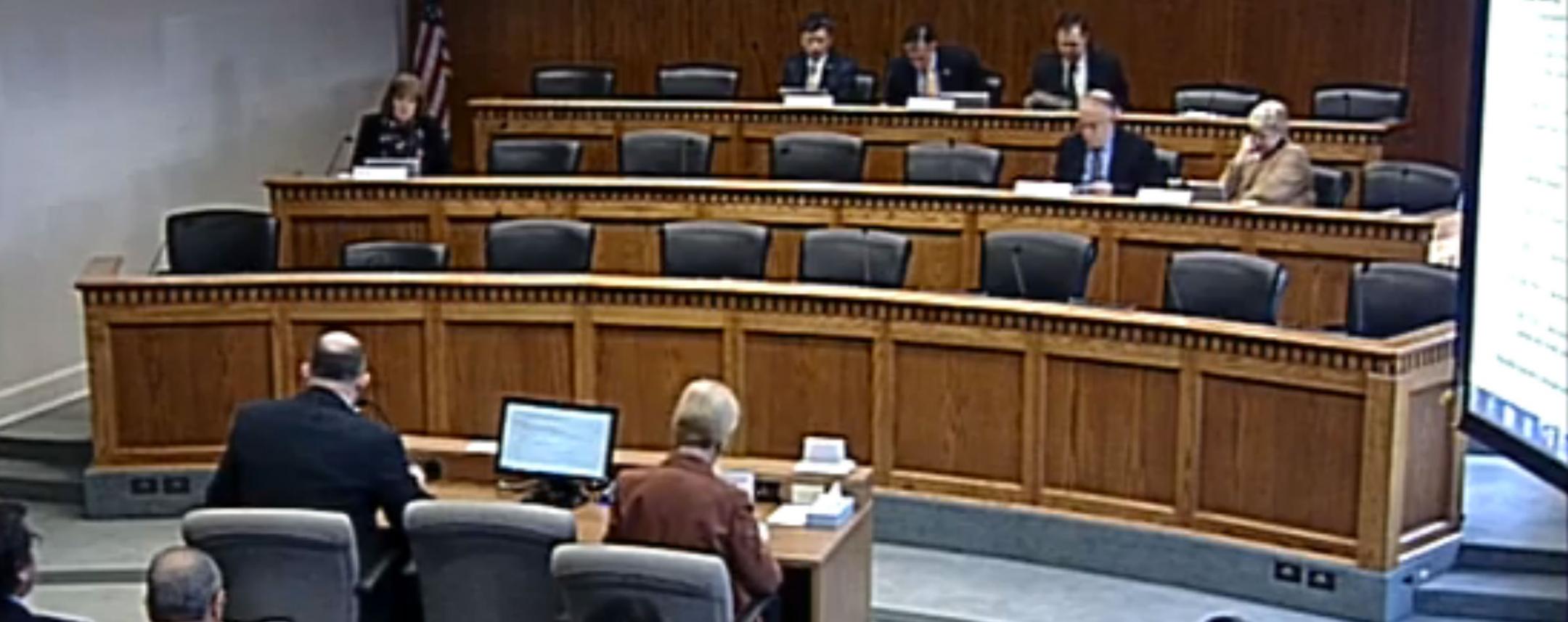When it comes to protecting the rights of public employees and allowing them to be in control of their workplace representation, Washington state’s laws are some of the worst in the nation.
Legislation recently introduced by Sen. Jan Angel (R-Port Orchard) would take a modest step in the right direction.
Senate Bill 5045 would empower unionized public employees to better control their workplace representation by giving them an option to democratically decide whether they want their bargaining unit to be required to pay union dues as a condition of employment.
The idea isn’t new. Under the National Labor Relations Act of 1935 (NLRA), if at least 30 percent of the employees in a workplace sign a petition calling for one, the National Labor Relations Board (NLRB) will hold a “deauthorization” election in which the employees determine whether to eliminate a union security provision from their contract. Union security provisions require employers to fire any employee who refuses to pay union dues or fees.
However, the NLRA only applies to unions and collective bargaining in the private sector. State law regulates collective bargaining by non-federal government employees.
To date, 25 states have banned union security provisions in government union contracts, giving public employees the ability to freely choose whether to join a union and pay dues. Other states, including California and Oregon, have included a deauthorization process based on the NLRA in their state laws governing public-sector unions.
Nationwide, fully three-quarters of union workers live in states that have either banned union security clauses or allow employees to vote to deauthorize them (see chart below).
So far, Washington has done neither. While private-sector union workers in Washington can petition to eliminate a union security provision, state law does not currently provide any mechanism for public employees to do so, leaving them little alternative but to pay union dues to a private organization or be fired.
SB 5045 seeks to remedy this situation by creating a union security deauthorization process for public employees based on 80-year-old federal precedent.
The bill received a hearing before the Senate Commerce and Labor Committee on Wednesday.
Watch Sen. Angel summarize SB5045 for the committee below:
Two union lobbyists testified against the bill. The lobbyist for the Washington Public Employees Association argued that the bill was a “solution in search of a problem” because union members already vote to ratify their contracts.
However, he failed to mention that (1) there is no legal requirement for unions to hold a contract ratification vote, though most do; (2) there is never any opportunity to vote specifically on the inclusion of a union security provision, the whole contract must be either approved or rejected; and (3) union nonmembers, the people least likely to approve of a forced dues requirement, are excluded from participating in contract ratification votes.
He also argued that allowing union members to deauthorize the union security provision of a collective bargaining agreement would make it harder to enforce other parts of the contract, though he failed to explain why this would be the case. The law is narrowly tailored to match federal precedent and only allows the union security provision to be deauthorized.
Similarly, a lobbyist for Professional and Technical Employees Local 17 argued that SB 5045 was “harmful to the middle class” and would “risk the safety and livelihood of our nurses, engineers and many more of our members.” She also failed to explain how SB 5045 would bring these travesties about.
In addition to the Freedom Foundation, five current and former union workers testified in support of the legislation.
One former state employee testified that while the bill “is an incremental step in helping state employees regain some of their rights, it doesn’t go far enough.”
Another employee of the Kitsap Public Health District testified that most of his bargaining unit had signed a petition to remove the union security requirement from their contract before they realized there was no legal mechanism for them to do so.
Watch the full testimony on SB5045 below:
|
State |
Sector |
RTW? |
Deauthorization? |
Union Workers |
|
Alabama |
Private |
Yes |
N/A |
131,395 |
|
Alabama |
Public |
Yes |
N/A |
91,074 |
|
Arizona |
Private |
Yes |
N/A |
66,973 |
|
Arizona |
Public |
Yes |
N/A |
79,844 |
|
Arkansas |
Private |
Yes |
N/A |
20,333 |
|
Arkansas |
Public |
Yes |
N/A |
23,349 |
|
Florida |
Private |
Yes |
N/A |
211,587 |
|
Florida |
Public |
Yes |
N/A |
317,073 |
|
Georgia |
Private |
Yes |
N/A |
139,803 |
|
Georgia |
Public |
Yes |
N/A |
107,772 |
|
Idaho |
Private |
Yes |
N/A |
13,680 |
|
Idaho |
Public |
Yes |
N/A |
22,038 |
|
Indiana |
Private |
Yes |
N/A |
190,216 |
|
Indiana |
Public |
Yes |
N/A |
84,276 |
|
Iowa |
Private |
Yes |
N/A |
86,549 |
|
Iowa |
Public |
Yes |
N/A |
84,169 |
|
Kansas |
Private |
Yes |
N/A |
56,212 |
|
Kansas |
Public |
Yes |
N/A |
49,357 |
|
Louisiana |
Private |
Yes |
N/A |
55,960 |
|
Louisiana |
Public |
Yes |
N/A |
38,585 |
|
Michigan |
Private |
Yes |
N/A |
389,295 |
|
Michigan |
Public |
Yes |
N/A |
265,458 |
|
Mississippi |
Private |
Yes |
N/A |
30,653 |
|
Mississippi |
Public |
Yes |
N/A |
13,279 |
|
Nebraska |
Private |
Yes |
N/A |
37,328 |
|
Nebraska |
Public |
Yes |
N/A |
41,050 |
|
Nevada |
Private |
Yes |
N/A |
118,934 |
|
Nevada |
Public |
Yes |
N/A |
66,532 |
|
North Carolina |
Private |
Yes |
N/A |
88,894 |
|
North Carolina |
Public |
Yes |
N/A |
95,076 |
|
North Dakota |
Private |
Yes |
N/A |
12,776 |
|
North Dakota |
Public |
Yes |
N/A |
16,129 |
|
Oklahoma |
Private |
Yes |
N/A |
61,482 |
|
Oklahoma |
Public |
Yes |
N/A |
82,832 |
|
South Carolina |
Private |
Yes |
N/A |
50,335 |
|
South Carolina |
Public |
Yes |
N/A |
35,690 |
|
South Dakota |
Private |
Yes |
N/A |
9,071 |
|
South Dakota |
Public |
Yes |
N/A |
11,878 |
|
Tennessee |
Private |
Yes |
N/A |
90,182 |
|
Tennessee |
Public |
Yes |
N/A |
98,463 |
|
Texas |
Private |
Yes |
N/A |
318,812 |
|
Texas |
Public |
Yes |
N/A |
328,560 |
|
Utah |
Private |
Yes |
N/A |
31,252 |
|
Utah |
Public |
Yes |
N/A |
36,152 |
|
Virginia |
Private |
Yes |
N/A |
107,174 |
|
Virginia |
Public |
Yes |
N/A |
121,647 |
|
Wisconsin |
Public |
Yes |
N/A |
144,962 |
|
Wyoming |
Private |
Yes |
N/A |
9,679 |
|
Wyoming |
Public |
Yes |
N/A |
6,847 |
|
Alaska |
Private |
No |
Yes |
25,635 |
|
California |
Private |
No |
Yes |
1,196,304 |
|
California |
Public |
No |
Yes |
1,382,643 |
|
Colorado |
Private |
No |
Yes |
109,668 |
|
Connecticut |
Private |
No |
Yes |
98,040 |
|
D.C. |
Private |
No |
Yes |
12,706 |
|
Delaware |
Private |
No |
Yes |
18,232 |
|
Hawaii |
Private |
No |
Yes |
64,251 |
|
Illinois |
Private |
No |
Yes |
486,071 |
|
Kentucky |
Private |
No |
Yes |
152,469 |
|
Maine |
Private |
No |
Yes |
27,954 |
|
Maryland |
Private |
No |
Yes |
123,257 |
|
Massachusetts |
Private |
No |
Yes |
189,240 |
|
Minnesota |
Private |
No |
Yes |
192,857 |
|
Missouri |
Private |
No |
Yes |
180,864 |
|
Montana |
Private |
No |
Yes |
25,870 |
|
New Hampshire |
Private |
No |
Yes |
20,767 |
|
New Jersey |
Private |
No |
Yes |
298,880 |
|
New Mexico |
Private |
No |
Yes |
15,010 |
|
New York |
Private |
No |
Yes |
1,097,925 |
|
Ohio |
Private |
No |
Yes |
357,914 |
|
Oregon |
Private |
No |
Yes |
97,115 |
|
Oregon |
Public |
No |
Yes |
126,235 |
|
Pennsylvania |
Private |
No |
Yes |
404,429 |
|
Rhode Island |
Private |
No |
Yes |
38,379 |
|
Vermont |
Private |
No |
Yes |
11,869 |
|
Washington |
Private |
No |
Yes |
299,315 |
|
West Virginia |
Private |
No |
Yes |
56,714 |
|
Wisconsin |
Private |
No |
Yes |
191,761 |
|
Alaska |
Public |
No |
No |
49,370 |
|
Colorado |
Public |
No |
No |
96,620 |
|
Connecticut |
Public |
No |
No |
121,103 |
|
D.C. |
Public |
No |
No |
21,064 |
|
Delaware |
Public |
No |
No |
22,537 |
|
Hawaii |
Public |
No |
No |
65,212 |
|
Illinois |
Public |
No |
No |
396,047 |
|
Kentucky |
Public |
No |
No |
73,138 |
|
Maine |
Public |
No |
No |
47,401 |
|
Maryland |
Public |
No |
No |
225,350 |
|
Massachusetts |
Public |
No |
No |
239,519 |
|
Minnesota |
Public |
No |
No |
188,048 |
|
Missouri |
Public |
No |
No |
84,261 |
|
Montana |
Public |
No |
No |
33,866 |
|
New Hampshire |
Public |
No |
No |
45,998 |
|
New Jersey |
Public |
No |
No |
332,736 |
|
New Mexico |
Public |
No |
No |
40,387 |
|
New York |
Public |
No |
No |
1,002,316 |
|
Ohio |
Public |
No |
No |
316,439 |
|
Pennsylvania |
Public |
No |
No |
348,220 |
|
Rhode Island |
Public |
No |
No |
43,290 |
|
Vermont |
Public |
No |
No |
25,698 |
|
Washington |
Public |
No |
No |
268,006 |
|
West Virginia |
Public |
No |
No |
36,504 |
|
Total Union Workers in RTW and/or Deauthorization States/Sectors: |
11,893,041 |
|||
|
Percentage of Total Union Workers |
74.3% |
|||
|
Total Union Workers in Non-RTW and Non-Deauthorization States/Sectors: |
4,123,130 |
|||
|
Percentage of Total Union Workers |
25.7% |
|||
Information in the above chart is compiled from unionstats.com, a project of Barry Hirsch, Georgia State University, and David Macpherson, Trinity University.










